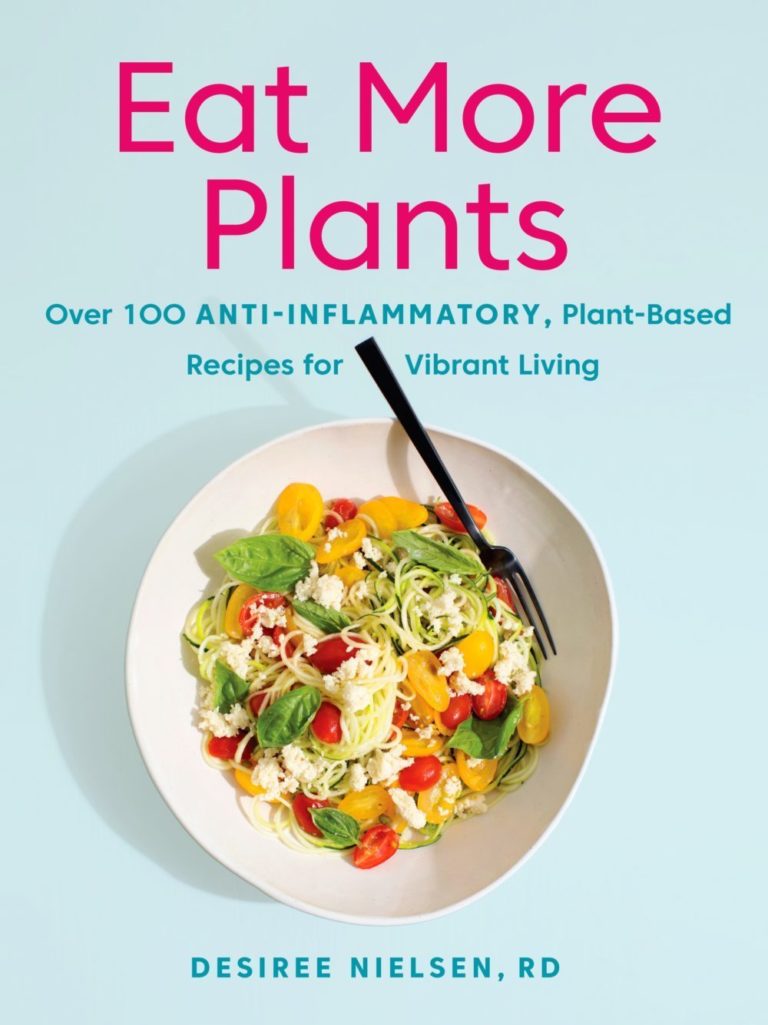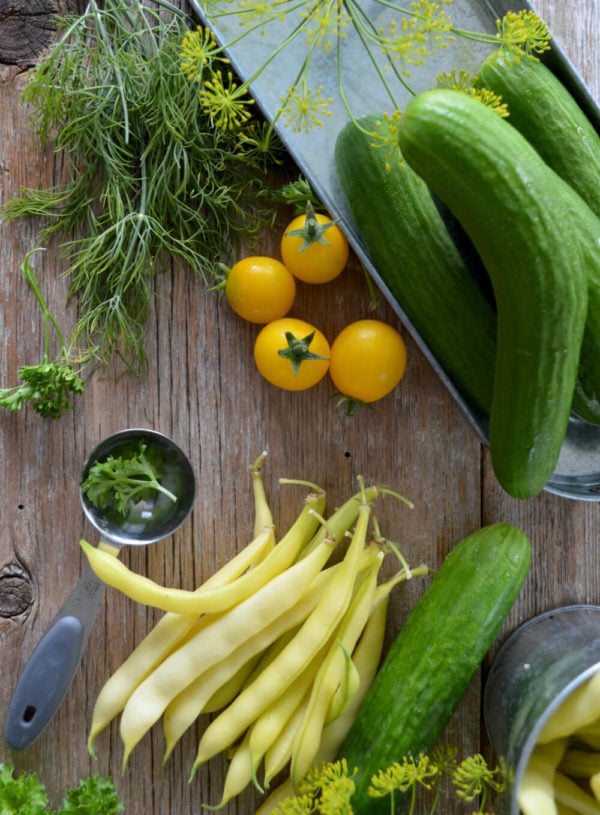Articles, Gut Health ·
How Stress Affects Your Gut – and what you can do about it.
Does stress tie your gut in knots? It does for me. I’m not just a gut health dietitian…I’m also a gal with a stressed out, fussy gut. So let’s talk about how stress affects your gut…and most importantly, what you can actually do about it.
Also, it’s not just you (or me!). We are totally living in an unprecedented era of fussy guts: according to the National Institutes of Health, 60 – 70 million Americans suffer from some kind of digestive disease. Here in Canada, the Canadian Digestive Health Foundation shares that over 20 million Canadians suffer from some kind of digestive dysfunction. You know what else plagues us in North America? Toxic levels of stress. Stress over deadlines, rent or mortgage payments that engulf most of our income, an utter lack of sleep, being constantly connected and ‘on’ and unable to rest. There’s also our totally inequitable society that makes it hard for many of us to feel secure and safe.
Yep, stress and gut issues are absolutely connected.
We see clients in our one-on-one consultations with digestive concerns who attribute most of their symptoms to food choice. And make no mistake, food can transform your digestive system for better or for worse. But stress is a very strong predictor of symptoms too, and a stressful event can lead to symptoms that you are more likely to mis-attribute to what you just ate than what you just thought leading to unnecessary food restriction.
How stress affects your gut
The gut and the brain have an intimate connection through the nervous system. The gut is heavily enervated – in fact, there are more nerve cells (neurons) in your gut-based (enteric) nervous system than in your spinal cord! Gut-brain connection goes two ways. It’s why we get ‘butterflies in our stomach’ when we’re nervous. Stress affects the gut – but the gut can also affect our stress response and moods. In fact, it is thought that about 90% of gut-brain communication is going from the gut to the brain. It creates a vicious cycle that can make you feel pretty crummy until you get a handle on it.
These are just some of the ways that stress affects your gut:
- Stress can alter the rate at which your gut moves, either too fast (diarrhea!) or too slow (bloating and constipation)
- Stress can initiate a flare of ulcerative colitis or crohn’s disease
- Stress can initiate painful spasms in IBS
- Stress can intensify perceptions of pain
- Stress can alter the community of bacteria that live in your gut, leading to gut barrier dysfunction, inflammation and worsening digestive symptoms.
- Stress can make reflux or ulcer symptoms feel worse
Stress and bowel movements
Stress can seriously mess with your bowel movements. If you’ve ever had to run to the bathroom before an exam or big meeting at work, you know what I’m talking about. For some, stress speeds up gut motility and can cause diarrhea. For others, it can slow things down leading you to feel really bloated and constipated. Stress can even slow down stomach emptying while speeding up the colon. It can make you more hungry – particularly for comfort foods like chips or ice cream – or it can destroy your appetite, making it hard to get the nutrients you need.
How does this happen? Well, stress can augment neurotransmitter production in your gut. Your gut-based nervous system is responsible for the majority of serotonin production in your body – and this serotonin is important for regulating gut movement. Stress can also cause muscles to tense…and your gut is surrounded by multiple layers of smooth muscles that generates movement.
Now, if this happens for a day or two every once in a while, it’s really no big deal. But what if this is your everyday? You’re going to need some real solutions to minimize how stress affects your gut.
Stress + IBS
Stress doesn’t just mess with your digestive tract itself…it also messes with your microbiome. In one animal model study, researchers found that stress affected the gut as strongly as a high fat diet.
For someone with irritable bowel syndrome, this trifecta of motility-nervous system-microbiome changes can really increase your IBS symptoms. So whenever we’re supporting someone with IBS, yes we are always going to talk about nutrition – and perhaps a low FODMAP diet – but we are also going to address more global contributors such as stress, sleep and movement. And there is some research behind this approach.
Stress inhibits vagal tone – a core indicator of parasympathetic (rest + digest) nervous system function; low vagal tone is not uncommon in those with IBS and IBD. Approaches that aim to stimulate the vagus nerve and reduce stress have promise in IBS although we need more high quality research before we can start speaking about mind-body therapeutics in a definitive sense. For example, in one trial, an eight week mindfulness-based stress reduction training helped improve symptoms. In another trial, laughter yoga was found to be effective in minimizing symptoms.
5 Ways to Improve Digestion if You’re Stressed
If you’re stressed out – and it’s messing with your gut – invest as much energy in managing stress as you do your diet. I repeat: before you go on some restrictive elimination diet or buy hundreds of dollars worth of supplements, think about how you’re living. Examine harmful or stressful relationships. Leave a brutal job, if you can (of course it’s not always possible). Consider meditation or yoga; try and spend time in beautiful, natural settings like the beach, a park or local forest. Light candles, take baths, watch a funny movie.
Another hot tip: if you are super stressed out, be mindful about eating. Digestion will be compromised in this high energy state, you may make food choices that hurt instead of help your gut, you may eat too quickly and not chew your food properly and these factors lead to symptoms even in those without digestive disease.
Eat more plants.
Yes, eating more whole plant foods – like the recipes in Eat More Plants Cookbook – may help to protect your gut from the effects of stress. How? Because whole plant foods contain fibre + fermentable carbohydrates that help to regulate bowel movements as well as feed the microbiome so they can produce short chain fatty acids that are thought to help mitigate the gut barrier dysfunction and inflammation that could result from chronic stress or a less healthful diet. Short chain fatty acids such as butyrate have been studied for their ability to decrease gut-level inflammation, gut barrier function as well as mood. And no – you don’t need to take a supplement for that. You simply need to eat a wide variety of plant foods to keep your healthy butyrate producers humming!
If your diet doesn’t currently contain a lot of whole plant foods, especially fibrous ones like whole grains and legumes, be sure to take it slow. You want to train your gut for that high fibre life the same way you’d train your body to run a 10K.
Try breathwork or meditation
Deep breathing can help activate the vagus nerve, which helps set us in our ‘rest and digest’ parasympathetic nervous system. There are so many wonderful breathwork classes online, I’ve tried the ones at Open and really enjoyed them. Deep breathing practice can also be as simple as square breathing before meals.
A simple remedy to help you calm down your overactive gut, that I often share with my clients, is to do a minute of deep breathing before you pick up your fork. Deep breathing will help activate the parasympathetic nervous system – your rest and digest system. The easiest method is called square breathing: inhale for four counts, hold the inhale for four counts, exhale for four counts and hold the exhale for four counts.
If you’re curious about meditation, it is another great way to improve mood and mitigate the effects of chronic stress. There are some great apps out there like Headspace and Insight Timer but when you’re ready to go deeper, the Infinity Call is my favourite meditation subscription.
Try peppermint oil
If stress causes painful spasms in your gut, consider enteric coated peppermint oil, which is an evidence-based antispasmodic supplement in IBS. Peppermint oil helps soothe the smooth muscle of the gut so it doesn’t feel so crampy. It can also make you a bit more reflux-y, so be mindful.
Important note: enteric-coated peppermint oil is NOT essential oil. Never take essential oils internally. Also, vegan peppermint capsules can be difficult to find. Check labels if vegan.
Get Outside
Time spent outside, on a sun-filled deck, in the local park or at the beach is deeply healing. Spending time outdoors is routinely associated with improved mood and lower perceived stress in the research. Some ideas to get you outdoors:
- make a walking (or rolling!) date with friends instead of meeting indoors
- eat your lunch outside on a stoop, deck or at the nearest park if even for 10 minutes
- take your exercise outdoors, whether it is swimming in a lake, yoga in the park or going for a jog
- spending reading time on a bench instead of the couch
- get outside, no matter what the weather. bundle up and get some air 24/7/365
Consider adaptogens
If you’re curious about adaptogens, they are one of my favourite stress supports. I have not seen adaptogens such as ashwagandha or rhodiola specifically researched for digestive symptom relief but they do have a small (and growing!) evidence base for stress and even inflammation. So if other efforts aren’t giving you the relief you seek, talk to your doc, pharmacist or dietitian about whether an herbal support is right for you (they’re not right for everyone, including pregnancy and hypothyroid!).
Share this post
Posted By: Desiree Nielsen · In: Articles, Gut Health

Revolutionize your approach to a healthy anti-inflammatory diet with the power of plant-based foods.
Order Now
You’ll Also Love
-
 The super food you've probably missing in your diet…and why it's so good for you
The super food you've probably missing in your diet…and why it's so good for you -
 You ASKED: Is Leaky Gut Causing My Inflammation or Immune Issues? (Part Two of Three)
You ASKED: Is Leaky Gut Causing My Inflammation or Immune Issues? (Part Two of Three) -
 You asked, I answered: What is inflammation?
You asked, I answered: What is inflammation?
Leave a Reply Cancel reply
Your email address will not be published. Required fields are marked *
Comment
Recipe Rating Recipe Rating
Name *
Email *
Website
Save my name, email, and website in this browser for the next time I comment.
Notify me if Desiree replies to my comment










